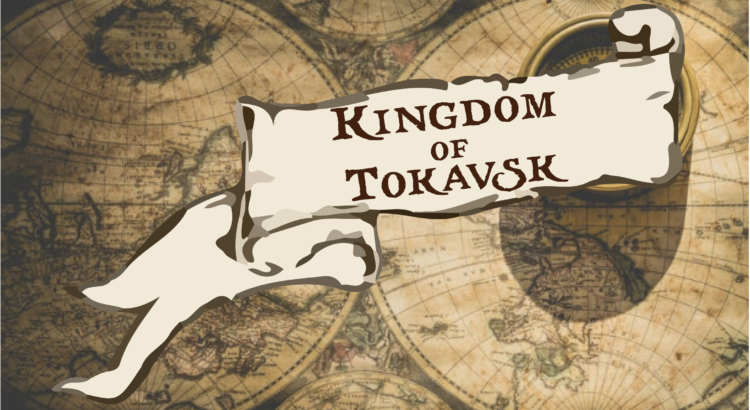The air here is made of cold. It breathes with the land and seeps into your bones, and when you take off your furs after being outside the beads of your fingers are yellow-white. You have to learn to move with the cold lest it takes you, the locals say as they shudder behind layers thinner than my own. As I write this, warmth and color have returned to my fingers, but they do not have full feeling yet. I pray that is soon restored. I know not how they survive in this eternal winter, the people of Tokavsk. I know not how I will.
Their language and customs flow with the cold. They have a saying here that he who nurtures winter’s chill will come to find spring in the snow. This aphorism, I believe, combined with their strange affinity for those lumbering beasts, are what keep them same amidst the bitter winds that strip the tree of their color and the sky of its light. A gruff courtier poorly learned in Artrudian [the writer’s presumed native tongue] explained this to me in broken lurches of language, but I gathered what I could in knowledge and pieced together what became my interpretation of the sentence above. I began to observe in the nightly feasts the king held in a dark wooden room to celebrate the first week of my tenure an atmosphere of tenuous warmth clinging to the roast meats on the odd round plates and the braziers on the walls. Wavering and yellow, it trickled across the dishes with names I know not made from roots and spices that sit pale on the tongue. There was a hearth cut into the wall on each end of the room lined with stone, as even they know wood loves to burn. Wood and scraps of food and bone served as fuel for the flames. This peculiar ritual I learned was called ilskat, the burning of life.
I have already written you about the nature of these feasts, so I will spare you the details a second time. Rather, I will focus on a particular custom that I should like to emulate. The men here cover their faces in animal fat, which they say staves off the worst of the cold. It is an old hunters’ tradition. I am not sure if this method has credence, but the tenderness of my nose, ears, and cheeks each time I venture beyond the walls is sufficient to compel me to try. I aim to ask a fellow named Vasel tomorrow through my interpreter. Vasel is quick to ensure my needs are met.



Leave a Reply
Be the First to Comment!